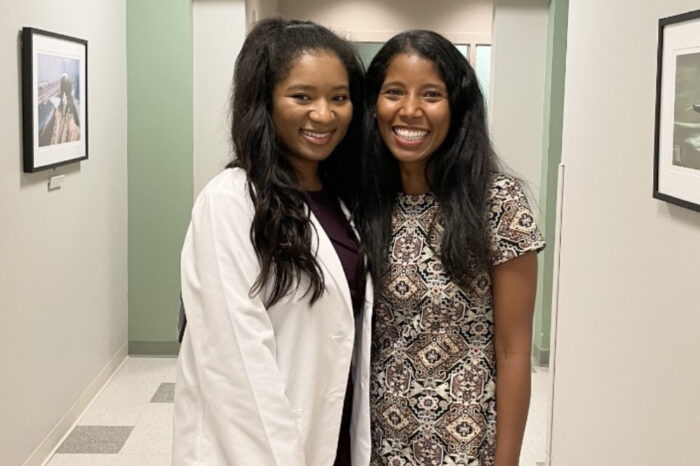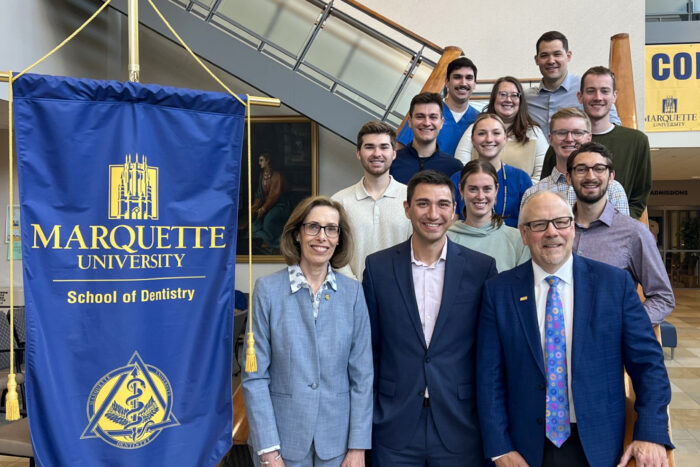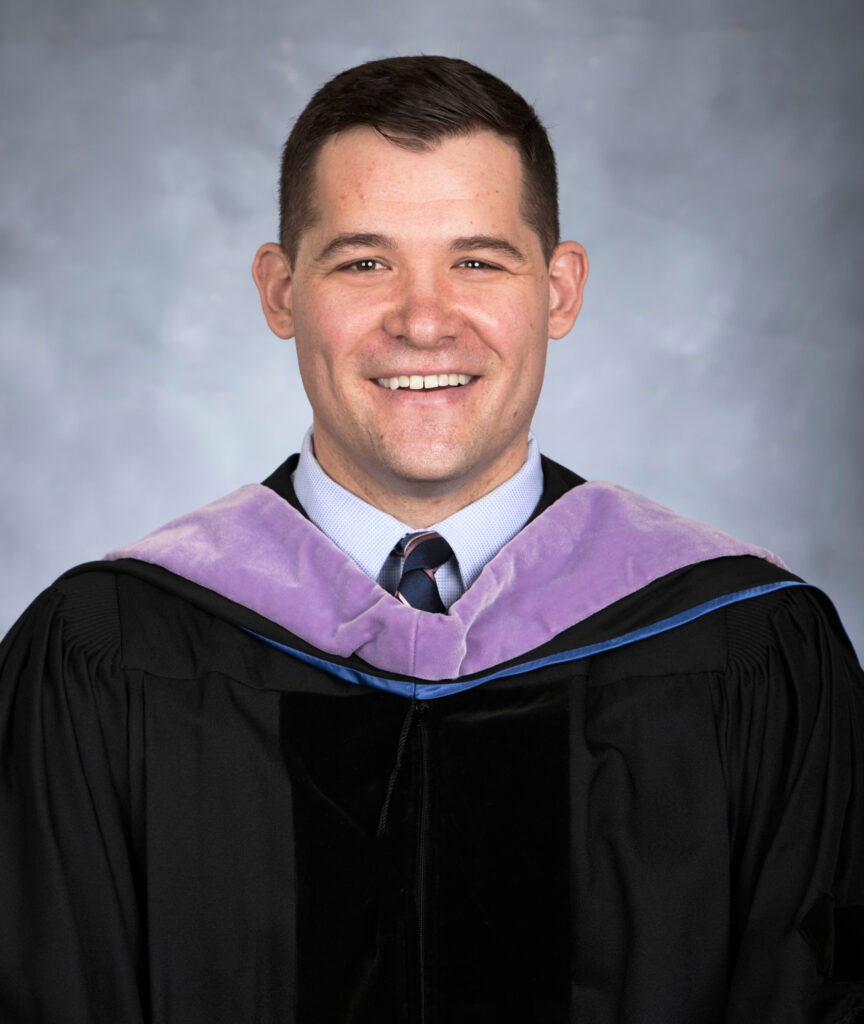
Jacob Scholz was stationed in Germany when his daughter was born.
To that point, Army life was all Scholz had known.
“When I deployed, Bailey couldn’t walk,” he recalls. “When I returned, she ran to me. I was like, ‘I’m going to miss so much of her life.’”
It was a moment that made Scholz begin to consider a drastic career shift.
After four years of active duty as a medic, leaving the military for a career in the medical field was a logical path. So, at age 25 with a child at home and another on the way, Scholz enrolled in Marquette’s undergraduate biological sciences program.
Still enlisted in the Army National Guard during his studies, a member of his unit recommended he consider becoming a dentist.
Managing the school-life balance
The average age of a student entering the Marquette University School of Dentistry is 23; Scholz was 28 when he began as a “D1” — the term for a first-year dental student.
“I started dental school with two kids, and it was pretty brutal,” Scholz says.
His wife, Pamela, was a neonatal ICU nurse at Children’s Wisconsin during his D1 and D2 years, so he was on full parenting duty during her frequent 12-hour shifts.
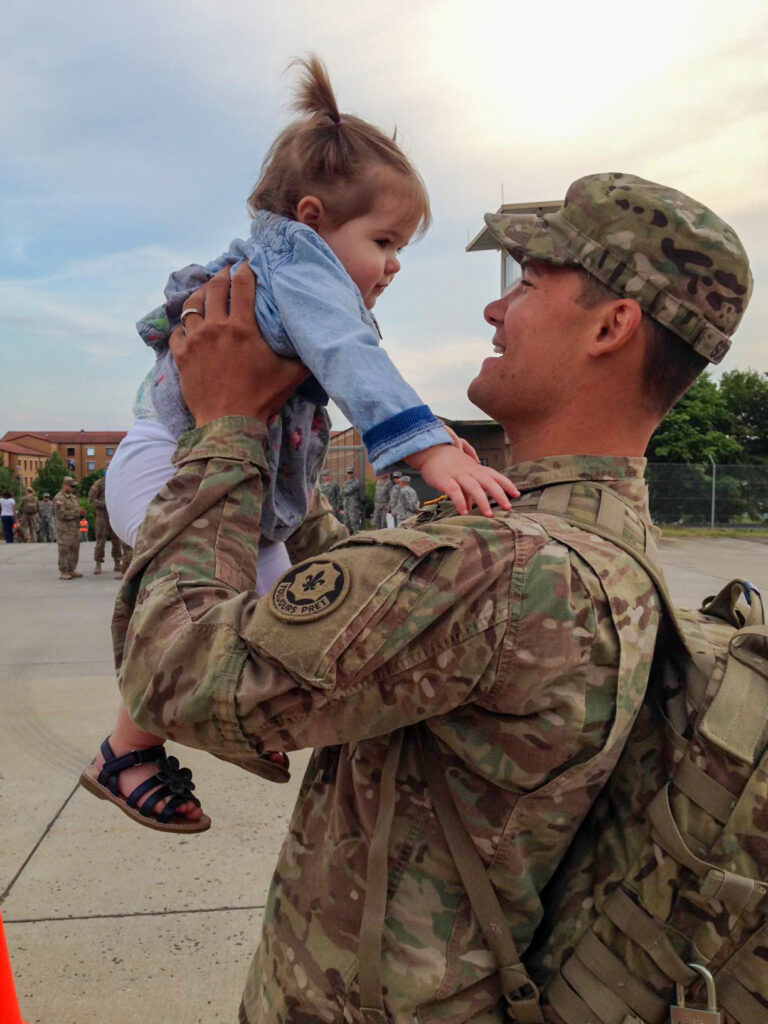
“I would hang out with them all day and not have time to study,” Scholz explains. “In the evenings, I would just hammer the material. I would work as hard as I could to play catch-up.”
Those first years also took place during the COVID-19 pandemic, when written exams were administered remotely with a webcam to screen for possible cheating. That would present challenges for the father of two at his Whitefish Bay home.
“I would be taking exams at home and sometimes, my daughter would run into the background, and the camera would flag it,” Scholz says with a chuckle. “I would have to bring my daughter back upstairs and then explain to the camera, ‘I’m sorry about that, let’s continue with the test.’”
Scholz says he struggled through a couple exams early on. Between the rigors of dental school and life at home, he needed to find a balance.
“I had to go for quality of studying over quantity,” he says, a mentality he took from his time in the Army.
From milkshakes to military, finding a sense of direction
Originally from Reno, Nevada, Scholz left a troubled home life when he turned 18. He moved to southern California to start college but dropped out after a few weeks. Days at the beach with friends and nights making milkshakes at a surfside restaurant were the norm.
“I had no direction,” he says. “I joined the Army because I had no real life skills.”
In basic training and during active duty, Scholz learned many skills that translated to his dental practice. During his deployment in Romania, he was administering IVs and managing emergencies.
“When we first started giving intraoral injections for anesthesia, I felt comfortable because I had experience,” reflects Scholz on his early years in dental school. “I understood vitals, I could take a manual blood pressure, I could do injections. I think that gave me a bit of an edge.”
Dr. Ellen Pelz, clinical assistant professor and Scholz’s group leader throughout his four years, still remembers an early interaction when he was a D1.
“I always leave my door open, but he wouldn’t walk into my office,” Pelz recalls. “I was like, ‘You can come in and sit.’ And he said, ‘I’m not used to that because you can’t walk into a commander’s office.’ I laughed and told him things aren’t like that here.”
And in the clinic, Pelz immediately recognized that Scholz carried himself differently than most students. Pelz says it’s common for students to get down on themselves when they face challenges, especially in the first two years. But that wasn’t the case for Scholz.
“He would never feel defeated,” she explains. “He has seen and dealt with far worse than anything we’ll see here. He knows there are things that are more important than needing to redo a restoration or having a crown that doesn’t fit and having to send it back.”
That sense of resiliency is something the School of Dentistry teaches but can take time for students to accept.
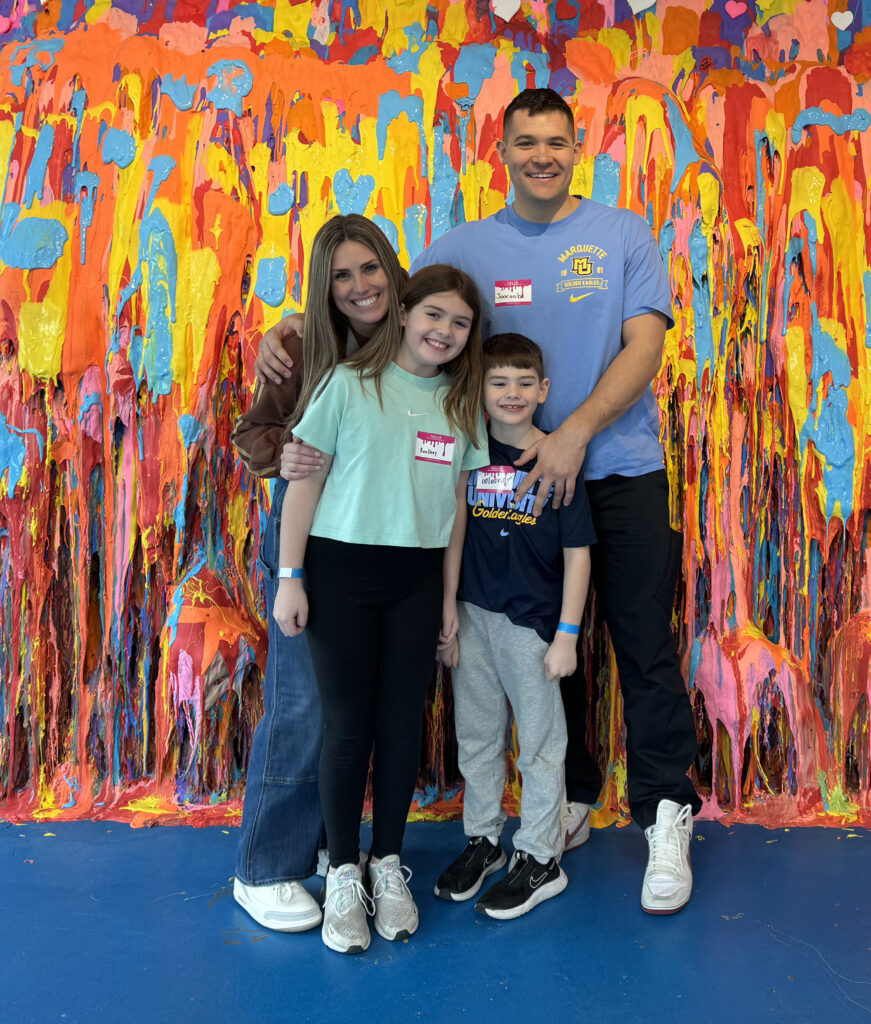
“It’s moving on to the next procedure,” Pelz elaborates. “It’s saying, ‘This didn’t go well. Things happen. Now I have to fix it.’ And he gets that.”
Now 32, Scholz will graduate from the School of Dentistry on May 18. After some much-needed family time, he will begin his professional career at Comprehensive Dental Services in Mequon on July 1.
“Having a family and being in dental school motivated me because I have a sense of direction in everything I do here,” Scholz says. “I have three people depending on me. I’m really excited to be finishing up and start working full-time in the community.”
